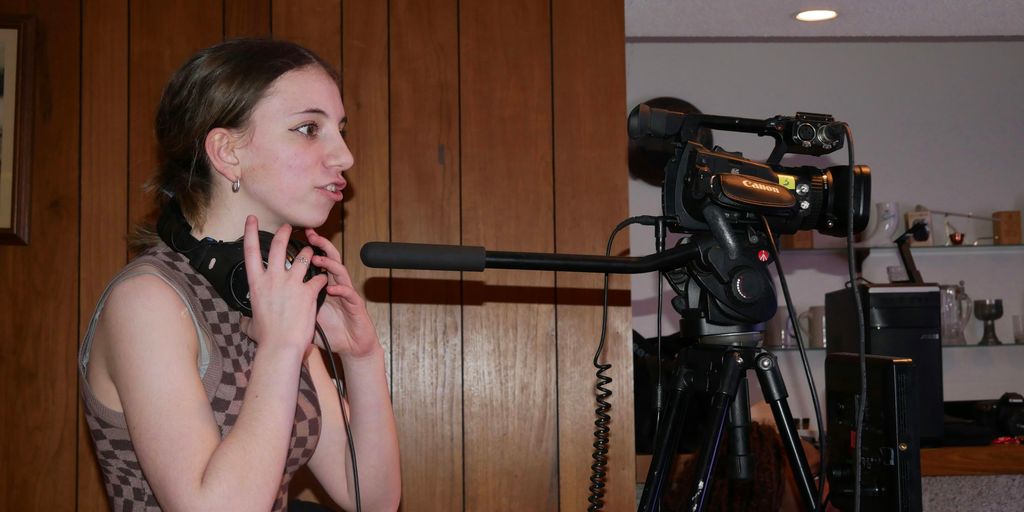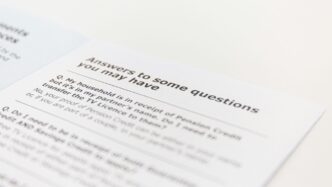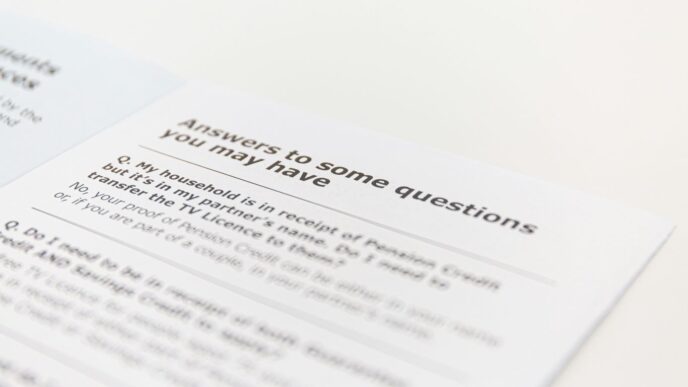Getting ready for a job interview can feel like a lot. You’ve got to think about what they might ask and how you’ll answer. A big part of that these days is dealing with behavioral based interview questions. These questions are a way for interviewers to get a real idea of how you handle things, not just what you say you can do. It’s about showing them, with examples, what you’re capable of. So, getting good at answering these kinds of questions is a smart move for anyone looking for a new job.
Key Takeaways
- Behavioral based interview questions help interviewers understand your past actions to guess how you’ll act in the future.
- The STAR method (Situation, Task, Action, Result) is a good way to structure your answers to these questions.
- Always have a few real-life stories ready that show off your skills and experiences.
- Make sure your answers focus on what YOU did in the situation, not just what the team did.
- Don’t be afraid to ask your own behavioral questions to the interviewer; it shows you’re thinking and engaged.
Understanding Behavioral Based Interview Questions
Defining Behavioral Based Interview Questions
Okay, so what are these behavioral questions everyone keeps talking about? Basically, they’re interview questions that ask you to describe specific situations from your past. The interviewer wants to hear about times you used certain skills or dealt with particular challenges. Think of it as the "Tell me about a time when…" type of question. They’re not looking for textbook answers; they want real-life examples.
The Purpose Behind Behavioral Questions
Why do interviewers even bother with these questions? It’s simple: they want to see how you actually behave in certain situations. It’s one thing to say you’re a great problem-solver, but it’s another thing entirely to prove it with a concrete example. They’re trying to get a sense of your soft skills and how you handle different scenarios. It’s a way for them to predict your future performance based on your past actions. It’s more insightful than just asking if you think you’re good at something. For example, they might ask about your motivations for joining the company.
Why Interviewers Prioritize Behavioral Questions
Behavioral questions are a big deal because they give interviewers a much better picture of you than traditional questions. Instead of just hearing what you think you would do, they get to hear what you actually did. This helps them assess your skills, your problem-solving abilities, and your overall fit with the company culture. It’s all about seeing how you’ve handled things in the real world. Plus, it’s harder to fake a detailed story than it is to give a generic answer. They want to see how you react under pressure, how you work with others, and how you learn from your mistakes. It’s a way to get past the polished resume and see the real you.
Crafting Effective Responses to Behavioral Based Interview Questions
Structuring Your Answers Effectively
Okay, so you know you’re going to get hit with behavioral questions. Now what? It’s not enough to just have a story; you need to tell it right. Think of your answer as a mini-presentation with a clear beginning, middle, and end. Start by briefly setting the stage, then dive into the details of what happened and what you did, and wrap it up by explaining what you learned or what the outcome was. It’s like giving someone directions – you need to be clear and concise, or they’ll get lost. Here’s a simple structure to follow:
- Context: Briefly describe the situation.
- Action: Explain what you did.
- Result: Share the outcome and what you learned.
Leveraging the STAR Method for Behavioral Questions
If you’re struggling with how to structure your answers, the STAR method is your best friend. STAR stands for Situation, Task, Action, and Result. It’s a framework that helps you tell a complete and compelling story. Let’s break it down:
- Situation: Set the scene. Where were you? What was the context? Give enough detail so the interviewer understands the challenge.
- Task: What was your specific goal or objective? What were you trying to achieve? Make sure this is clear.
- Action: This is the most important part! What exactly did you do? Don’t just say "I helped the team." Explain your specific actions and responsibilities. What steps did you take? How did you approach the problem? This is where you show off your skills. Think about relevant professional stories that highlight your abilities.
- Result: What was the outcome? Did you succeed? What did you learn? Quantify your results whenever possible (e.g., "increased sales by 15%"). Even if the outcome wasn’t perfect, focus on what you learned from the experience.
Identifying Key Skills in Behavioral Questions
Before you even start crafting your answer, take a moment to figure out what the interviewer is really asking. What skill or quality are they trying to assess? Are they looking for leadership, teamwork, problem-solving, or something else? Once you know what they’re after, you can tailor your response to highlight those specific skills. For example, if they ask about a time you failed, they’re probably trying to gauge your resilience and ability to learn from mistakes. Make sure your answer addresses the underlying skill they’re trying to uncover. Think about the STAR method and how it can help you structure your answer to showcase the skills they are looking for. Here’s a quick guide:
- Listen Carefully: Pay close attention to the question.
- Identify the Skill: Determine what the interviewer is assessing.
- Tailor Your Response: Highlight the relevant skills in your answer.
Preparing for Common Behavioral Based Interview Questions
Anticipating Typical Behavioral Scenarios
Okay, so you know behavioral questions are coming. Now what? The best thing you can do is try to guess what they’ll ask. Think about the job description. What skills are they really looking for? Are they emphasizing teamwork, problem-solving, or maybe leadership? Those are your clues.
- Make a list of the top 5-7 skills the job requires.
- For each skill, brainstorm situations where you’ve demonstrated it.
- Think about projects you’ve worked on, challenges you’ve faced, and times you’ve really shined.
For example, if the job needs someone who can handle conflict, prepare a story about a time you navigated a disagreement with a coworker. If it’s a leadership role, think about a time you motivated a team to achieve a goal. It’s like being a fortune teller, but instead of tea leaves, you’re reading the job description.
Developing Relevant Professional Stories
Now that you’ve got your list of potential scenarios, it’s time to flesh them out. Don’t just have a vague idea; you need solid, well-rehearsed stories. This is where the STAR method really comes in handy (we’ll talk about that later, but you should structure your answers using it!).
Think of each story as a mini-movie. What was the setting? Who were the characters? What was the plot? What was the resolution? The more details you can remember, the more engaging your story will be. But don’t just focus on the facts; remember to include your feelings and reactions. How did you feel when you faced this challenge? What did you learn from the experience?
Tailoring Responses to Specific Roles
This is where the magic happens. You can’t just use the same story for every question. You need to tweak it to fit the specific role you’re applying for. Think about what the interviewer is really asking. What are they trying to find out about you?
Let’s say you have a great story about leading a team project. If you’re applying for a management position, you might focus on how you motivated your team and delegated tasks. But if you’re applying for a technical role, you might emphasize the technical challenges you overcame and the innovative solutions you developed. It’s all about highlighting the aspects of the story that are most relevant to the job. Think of it as having a wardrobe full of clothes, but choosing the perfect outfit for each occasion. You want to make sure you’re dressed for success!
Mastering the Art of Answering Behavioral Based Interview Questions
Focusing on Actual Behaviors and Emotions
It’s easy to get caught up in describing the situation, but the interviewer really wants to know what you did and how you felt. Don’t just tell them you’re a team player; show them through your actions and emotional responses. Think about it: they’re trying to predict your future behavior based on your past. So, focus on describing your specific actions, decisions, and the emotions you experienced during the situation. This gives them a much clearer picture of how you operate.
Highlighting Your Specific Role in Past Situations
One of the biggest mistakes people make is talking about "we" instead of "I." While teamwork is important, the interviewer is trying to assess your individual skills and contributions. Make sure to clearly define your role and responsibilities in the situation. What specific tasks did you handle? What decisions did you make? What was the impact of your actions? For example, instead of saying, "We developed a new marketing strategy," say, "I was responsible for researching market trends and developing the social media component of the new marketing strategy. This resulted in a 30% increase in engagement."
Practicing the "Yes, And…" Mentality
Think of answering behavioral questions like an improv exercise. The interviewer presents a scenario, and you build upon it. Even if the situation wasn’t ideal, acknowledge it and then explain how you learned and grew from the experience. This shows adaptability and a willingness to learn. For instance, if you faced a project setback, don’t just dwell on the negative. Instead, say, "Yes, the project faced unexpected delays due to [reason], and to mitigate this, I [action taken]." This demonstrates problem-solving skills and a proactive approach. It’s about showing how you can turn a challenge into an opportunity for growth. It’s also a good idea to practice your answers out loud. This will help you feel more comfortable and confident during the actual interview. Consider recording yourself to identify areas for improvement. Also, remember to tailor your stories to the specific job requirements. This shows that you understand the role and how your skills align with the company’s needs. Think about the skills and qualities the employer is looking for and choose stories that highlight those attributes. For example, if the job requires strong communication skills, share a story where you successfully communicated a complex idea to a diverse audience. This targeted approach will make your answers more impactful and memorable. Remember, the goal is to showcase your abilities and demonstrate why you’re the best candidate for the job. By focusing on your specific actions, emotions, and lessons learned, you can effectively answer behavioral questions and leave a lasting impression on the interviewer. You can also look for more open jobs to practice your interview skills.
Transforming the Interview with Behavioral Based Questions
Flipping the Script as a Candidate
It’s easy to think of interviews as a one-way street, with you just answering questions. But, behavioral questions offer a chance to turn the tables. When the interviewer asks, "Do you have any questions for me?", don’t just ask about vacation time. Instead, use this as an opportunity to gather real insights into the company culture and the day-to-day realities of the role. This shows you’re proactive and genuinely interested.
Asking Thoughtful, Situation-Based Questions
Instead of generic questions, prepare some that are situation-based. For example, instead of asking "What’s the company culture like?", try "Can you describe a time when the team faced a significant challenge, and how did they work together to overcome it?". This will give you a much better understanding of how the company operates in practice. Think about what’s important to you in a job and craft questions that will reveal whether this company aligns with your values.
Making the Interview a Two-Way Street
Remember, an interview is a conversation. It’s a chance for you to assess whether the company is a good fit for you, just as much as it is for them to assess you. By asking thoughtful questions and engaging in a genuine dialogue, you can transform the interview into a two-way street. This not only helps you make a better decision but also demonstrates your confidence and professionalism. Don’t be afraid to ask follow-up questions or probe deeper into areas that are important to you. Here are some examples of questions you could ask:
- "What are the biggest challenges the team is currently facing?"
- "How does the company support professional development and growth?"
- "Can you describe the leadership style of the team?"
Showcasing Your Abilities Through Behavioral Based Interview Questions
Demonstrating Problem-Solving Skills
Behavioral interview questions are great for showing off your problem-solving abilities. Instead of just saying you’re a good problem-solver, you get to prove it with a real-life example. Think about a time you faced a tough challenge at work. What was the problem? What steps did you take to solve it? What was the outcome? Be specific and quantify the results if possible. For example, instead of saying "I improved efficiency," say "I improved efficiency by 15% by implementing a new workflow process."
Illustrating Teamwork and Collaboration
Employers really value teamwork. They want to know you can work well with others. So, be ready to share stories about your experiences in collaborative settings. Don’t just say you’re a team player; show it. Describe a situation where you worked with a team to achieve a common goal. What was your role? How did you contribute to the team’s success? How did you handle disagreements or conflicts? Did you use candidate assessments to improve team performance? Give specific examples of how you supported your teammates and helped the team achieve its objectives.
Here are some key aspects to highlight:
- Your specific role within the team.
- How you communicated with team members.
- How you resolved conflicts or disagreements.
Sharing Accomplishments and Learning Experiences
Behavioral questions aren’t just about showcasing your successes; they’re also about demonstrating your ability to learn from failures. Be prepared to share stories about both your accomplishments and your learning experiences. When discussing accomplishments, highlight the skills and qualities that contributed to your success. When discussing failures, focus on what you learned from the experience and how you applied those lessons to future situations. It’s all about showing that you’re adaptable, resilient, and committed to continuous improvement. Think about how you can use the STAR method to structure your answers effectively.
Consider these points when sharing:
- What you learned from the experience.
- How you applied those lessons in the future.
- The impact of your learning on your performance.
Refining Your Approach to Behavioral Based Interview Questions

Avoiding Generic Responses
It’s easy to fall into the trap of using cookie-cutter answers, but interviewers can spot those a mile away. Instead of relying on vague statements, focus on providing specific examples that showcase your unique skills and experiences. Think about it: "I’m a hard worker" doesn’t mean much without a story to back it up. Dig deep and find those moments where you truly shined, and use those to illustrate your points. For example, instead of saying you have digital marketing strategies, describe a time you implemented one and the results you achieved.
Ensuring Authenticity in Your Stories
Honesty is always the best policy, especially in an interview. Don’t try to embellish or fabricate stories to make yourself look better. Interviewers are skilled at detecting insincerity, and it can seriously damage your credibility. Focus on being genuine and sharing real experiences, even if they involve mistakes or challenges. It’s how you handled those situations that truly matters. Be yourself, and let your personality shine through.
Connecting Past Performance to Future Potential
The goal of behavioral questions isn’t just to rehash the past; it’s to demonstrate how your past experiences make you a great fit for the future. After sharing a story, take the time to explain how the skills and lessons you learned can be applied to the role you’re interviewing for. Show the interviewer that you’re not just telling a story, but that you’re thinking critically about how you can contribute to their team. Consider these points:
- How does this experience relate to the job requirements?
- What specific skills did you develop that are relevant?
- How will you use these skills to succeed in this role?
Wrapping It Up
So, there you have it. Getting ready for behavioral questions might seem like a lot, but it’s really about telling your own work stories in a clear way. Think of it as showing off what you can do, not just saying it. When you practice these stories, you’ll feel more sure of yourself, and that comes across in an interview. It’s not about memorizing answers, but understanding how to talk about your past work. This way, you’re not just ready for the questions, you’re ready to show them who you are and what you bring to the table.
Frequently Asked Questions
What are behavioral interview questions?
Behavioral interview questions are special questions where the interviewer asks you to tell stories about things you’ve done in the past. They want to see how you acted in real-life work situations. This helps them guess how you might act in the future if they hire you.
Why do companies ask behavioral questions?
Interviewers use these questions because they give them a better idea of what you’re really like at work. Instead of just saying you’re a ‘team player,’ you can tell a story that proves it. This helps them see your actual skills and how you solve problems.
What is the STAR method?
The STAR method is a simple way to answer these questions. STAR stands for Situation, Task, Action, and Result. You describe the Situation you were in, the Task you had to do, the Actions you took, and the positive Result of your actions. It helps you tell a clear and complete story.
How do I choose the best stories to share?
You should pick stories that show off the skills the job needs. Think about times you solved a problem, worked with a team, handled a tough situation, or learned something new. Make sure your stories are about real events from your past jobs or experiences.
Should I be completely honest in my answers?
It’s super important to be honest. Don’t make up stories or pretend to be someone you’re not. Interviewers can usually tell if you’re not being truthful. Plus, your real experiences show who you are and what you can do.
Can I ask behavioral questions too?
Yes! At the end of the interview, when they ask if you have questions, turn it around. Ask them behavioral questions about their company or team. For example, ‘Tell me about a time your team faced a big challenge and how you handled it?’ This shows you’re thinking deeply and helps you learn if the job is a good fit for you.














